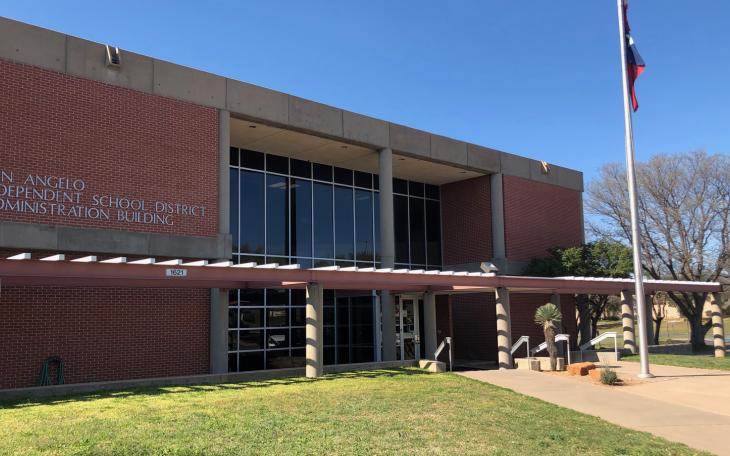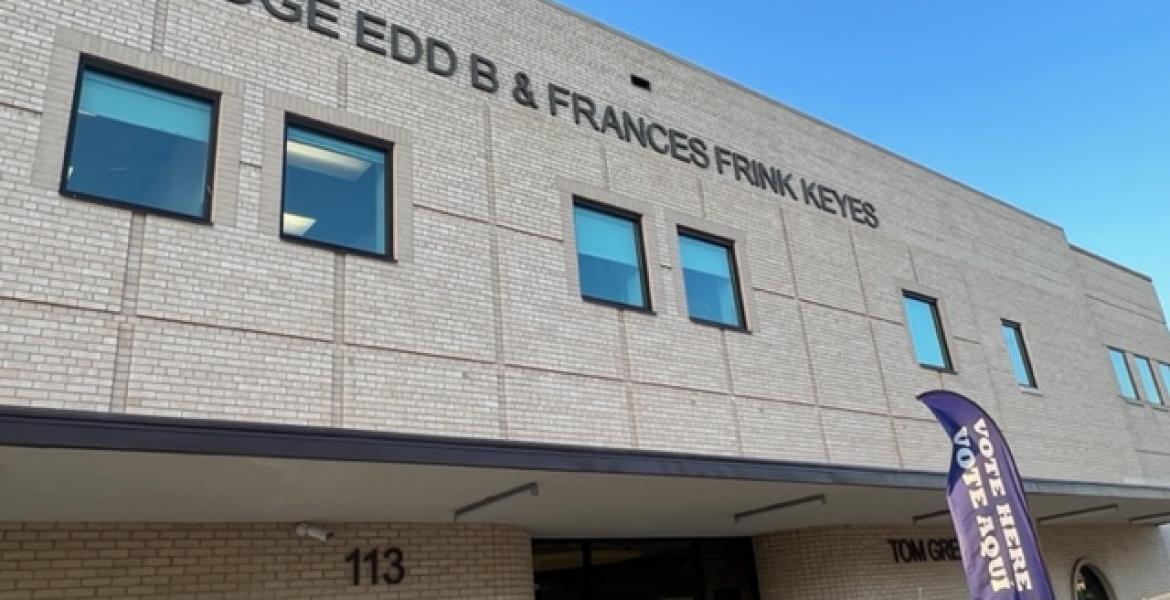After the Islamic State attacks in Paris in November 2015, a Wisconsin newspaper reported that Tuscaloosa, Alabama's Democratic Mayor Walter Maddox noted how the Parisian security staff prevented a suicide bomber from entering the French national soccer stadium. The Mayor thought about the University of Alabama's Bryant-Denny Stadium where more than 100,000 people gather for sporting events, and wondered what kind of an impact a terrorist attack would have on his city.
Tuscaloosa's population, 200,821, and much higher on game day, is similar to San Angelo’s and that of Midland/Odessa. When it comes to emergency management in these two West Texas mid-sized cities, two officials, John Love, City Councilman of District 2, and Emergency Management Coordinator for the City of San Angelo Steve Mild, provided their take on how both cities are prepared to deal with a major emergency.
The Problem with Mid-Sized City Mentality
Today, many people in mid-sized cities don’t think that a terrorist attack, or something terrible can happen to them.
Chet Lunner, a security consultant and former senior official at the U.S. Department of Homeland Security, said previously that less populated locales are where terrorists may settle, plan, or practice an attack.
Additionally, attacks don’t just come from terrorists. There have been many mass school shootings in small communities, active shooter situations at places of business, or mass shootings on military bases. Not to mention, emergencies come by way of nature with tornadoes, hurricanes or fires.
Overall, these types of incidents can put a major strain on a mid-sized city’s infrastructure. Unfortunately, many are unprepared for the aftermath of major emergency situations either because city leaders haven’t invested in strengthening their infrastructure, or there is a breakdown in communication.
And as the lone wolf attack in San Bernardino proved, a city with a population of just over 200,000, no city is safe from people who want their few minutes of fame or want to hurt others, negligence or oversight, or mother nature.
“I'm amazed at the number of people who never thought and planned for what would happen if we had a major disaster," said Mild.
Mild also said it takes a major catastrophe for people to open their eyes, and reiterated that in addition to mother nature, there are many people out there who want their few minutes of fame and don’t consider the consequences of their actions.
Mild said one of the first times he saw an example of this was when he worked law enforcement in Austin in the 1980s. He got a call from one of the high schools and was told one of the kids had a pipe bomb in his truck. Mild went there to investigate, and this student had five pipe bombs that he was selling to the students at the high school. This was prior to the internet and all the “how to” videos that show people how to make such things.
He also told the story of when 9-11 happened. Just prior to those events, he had taken a training course in basic counter terrorism in Alabama. He was working for the Tom Green County Sheriff’s Office back then. When he returned, he suggested make this training mandatory for everyone to the sheriff, and he gave Mild the go ahead.
“The last week in August, I did my first class, and when we put the information out that this was mandatory training, one of our dispatchers there at the Sheriff’s Office--he was an older fellow--he came up to me and said, ‘Steve, don’t you think you’re going a little overboard with this stuff?’" Mild recalled.
Mild also said during training, one of his sergeant deputies slept through a large part of the class and failed to past the post test.
However, on the morning of Sept. 11, during the second week of that class, and during the first break of the day, the unthinkable happened. Mild said they had just finished talking about Bin Laden and he was getting ready for the next module when this man ran in and said, “Captain, turn on the TV. Terrorists have hit the twin towers in New York."
Mild said, after that day, the sergeant came in and asked if he could take it again without sleeping through it, and the man from dispatch told him, “Captain, I owe you an apology. I want in the next class."
"Unfortunately, even today, we still have that,” Mild said. “And it’s really really sad when our public safety people have that [attitude], and our leadership has that attitude. I don’t know what it’s going to take short of somebody dying, or an actual attack on our property to wake people up.”
A Concern for Preparedness in Midland
Councilman Love said Midland has an emergency management system, but he’s not aware of anything in place to deal with a potential terrorist attack.
“This is oil industry, so one would think that if terrorists wanted to disable, or handicap, the United States of America, unfortunately, I think Midland/Odessa would be a prime target," Love said.
Love added that city leaders have talked about this lack of a system in the past, but the problem is finding the necessary resources and funds to implement a strategy or study that could be done.
“We’re government, and unfortunately, governments tend not to do anything unless a study is conducted, or requests for proposals, or requests for qualifications,” Love noted.
Love also said funds play a significant role. Additionally, another factor is that we live in a different world. Before 9-11-2001, no one would entertain the idea that small cities would have to do anything to protect themselves.
The Councilman said, “Well, this is post 9-11, and between what’s been happening abroad, and even the incidents that have been happening here, while not connected to Islamic terrorism, are definitely terrorist acts."
Love brought up the incident where armed anti-government protestors took over a building in a federal wildlife refuge in Oregon, accusing officials of unfairly punishing ranchers who refused to sell their land. They claimed they weren’t terrorists, but their actions caused city-wide fear.
“The same thing could happen here,” Love said. “That would be a significant problem.”
Love added that he likes to use the analogy of the iPhone. Prior to 2008, people weren’t thinking of downloading music and putting them into their phones, or live streaming videos.
“Now, technology has changed us and we’re doing things differently,” he added. “I think it’s the same way with cities and terrorism. It’s just I don’t think the conversation has been developed or initiated, but it’s something to be aware of going forward."
Love said, as a member of City Council, District 2, it’s easy to get the conversation started in Midland. All he has to do is bring the topic up to his fellow council members, continue to dialogue about it, and see if they warrant appropriating time and money to making the city a little bit safer. He would also, however, like to get a dialogue started with other West Texas cities, including San Angelo.
“As far as other cities are concerned, I think it would be an excellent idea for cities to have a regional meeting where they could share their best practices—things that have worked for them; things they might be considering,” Love stated. “I think Midland could be an integral, if not a focal point, for this conversation because of the fact that, unlike other small cities in Texas, our oilfield industry kind of puts a pretty big target on our back so-to-speak."
Love stated he would also be willing to put his words into action immediately. He has received numerous articles and it’s his intention to research all the data regarding the importance of a strong emergency management system.
“I plan to immediately have a conversation with the mayor about it, and the city manager, to see how we can start dialoguing about it with the rest of the council, and start seeing if we can get some direction on where to go with this to make things a little more safer," Love said.
Love emphasized that he plans on getting the dialogue started as soon as possible.
San Angelo Has a Strong System in Place
Mild said Midland is not alone in its struggle with emergency management. A couple commonalities in the jurisdictions that have problems include “turfism” where a city doesn’t want to talk to a county, and vice versa.
“And I don’t know if that’s the problem,” Mild clarified about the issue in Midland. “But that’s one of the commonalities I see all the time."
Mild said he shakes his head over it, but unfortunately that’s still a barrier. Also, money is a big barrier.
“You cannot possibly be totally prepared for every possible thing, so you have to do your best with the money you got. The federal money is drying up more and more every day; the local funding just isn’t there," explained Mild.
Mild said in San Angelo, however, people should be grateful for its emergency management program.
All of our operations and disaster responses, emergency responses operate under the larger umbrella of the National Incident Management System (NIMS).
To understand how this system works, Mild provided a history on how NIMS came about.
"As technology has developed over the years, things started becoming clearer that we could improve on the way in which we respond to things," Mild said. “That change started coming about in the 70s and 80s."
Mild said when more national-type disasters started happening, and communications were improved, many cities across the nation were finding out that maybe they needed to improve on all of their ways to respond, all the way from the federal level to the very local level.
He added that when they started having all of these hurricanes, and many larger communities were so devastated with resources and damaged to the point where they couldn’t respond, and they started requesting assistance from the federal government, they found that federal assistance coming in at the local level had a very slow response time.
“So in 2003, when President Bush was in office, [the administration] told FEMA, you develop a plan to improve the response,” said Mild. “So, the National Incident Management System was drawn up. While FEMA officials were drawing up NIMS, they looked at the ways in which they were responding and took the good things and incorporated them into [the plan].
One of the ways they did that Mild said, is, after looking at the Fire Scope program that California was using, FEMA made some changes and came up with the Incident Command System.
"The Incident Command System is a very good way to be able to organize any situation whether you’re talking about a house fire, or a major disaster like Hurricane Katrina," Mild explained.
He said FEMA then established all of the jurisdictions for locals to start operating under.
"People don’t like change; administrators don’t like change. People weren’t really buying into it and were bent on using their old ways on dealing with things,” Mild recalled. “So, in 2004, the President said, ‘Okay. If you want to receive federal funding, you have to adopt a National Incident Management System as your way of operating by October of 2005. If you do not adopt NIMS as your way of operating, then you will no longer be eligible for federal funding.’”
That was the Federal Government’s way of forcing cities, towns, and states to make the change. Mild said that wasn’t a bad thing.
“Now, what’s happened over the years is, because of a lot of things that have come out of that, and the uniformity it brings in to play, it doesn’t matter if Steve Mild from San Angelo, Texas responds to New York City, or Seattle. All of the terminology in NIMS is the same here as it is there, as it is anywhere in the United States."
Mild added that this is the system San Angelo operates under. The very core premise to the Incident Command System and NIMS is that every disaster starts and ends locally, and every disaster is managed locally. However, many people think that when a disaster happens FEMA is going to come in and take over.
“Nothing could be further from the truth,” Mild stated. FEMA doesn’t come in until requested, he added. That became evident of the process in New Orleans with Hurricane Katrina. The locals didn’t call on FEMA right away.
“FEMA was ready to respond and ready to go in, but the locals did not make that request, so they couldn’t go in until that request from the locals was received," Mild said.
Mild stated that every disaster is managed locally, and that means when a city says it needs help, that help that comes in doesn’t mean it takes over. They simply assist.
“We bring nothing to table but personnel who are experienced, that have been there, done that, and who have done these things to help train the local people, so they can get things under control, and they can go back home,” Mild said.
Mild added that San Angelo’s first responders, both in the city and in the county, are all very well-trained in the Incident Command System and on how to do their jobs.
He said, “I tell people all the time, ‘Until you have been to another jurisdiction, until you have been to one of these state meetings, and you get into those after-hour discussions with the leadership from these other jurisdictions, people cannot appreciate what we have here in San Angelo."
Mild stated, without a doubt, San Angelo has some of the finest firefighters and police officers in the state.
“Some of the horror stories I’ve heard from some of these larger jurisdictions, you just wouldn’t believe what goes on,” Mild stated.
Mild said another thing about San Angelo is leaders aren’t afraid to ask for help.
“We know how to network within the region,” Mild said.
Mild added that he is also a first-name basis with many of the representatives who assist in the process of emergency management. If that connection wasn’t there, things wouldn’t be so easy, he added.
“Building those personal relationships and building those bridges, that goes on across the board,” Mild said. “Law enforcement, the police department and the sheriff’s office have their relationships built with the Department of Public Safety, and that includes the FBI and all the federal agencies. They have an excellent working relationship with them."
Mild also has an excellent working relationship with Customs pilots at the airport.
“If we have a disaster here, and I need aerial photography and videos, I can make one phone call, and if they have a plane or a helicopter that can go up, it’s up. So those are the kinds of things that help us to be able to be prepared to respond to big things.”
San Angelo Still Suffers Barriers
As Mild said, money is a major barrier in effective emergency management, and it’s impossible to be prepared for everything. Also with federal money drying up, it’s difficult because the City then has to turn to the taxpayer to ask for more money.
“But taxpayers don’t want to hear that,” Mild said.
Mild added that he has two communication trailers, and one of them was purchased 10 years ago with Homeland Security grants by the city. The other one was put together when he worked for the county. He used donations and Homeland Security grant money. It’s a converted travel trailer.
“At the time, it was state of the art technology,” Mild explained.
However, the converted trailer ended up breaking down because of all the weight put on it over the years, and the other trailer has a poor design. It's unsafe to pull.
“So both of them need to be replaced, and some of the things I’m looking to do is to see if I can’t get a grant and/or private donations to be able to have a trailer built specifically for the purpose of communications," Mild said.
Mild added that equipment in those trailers are still good, so to transfer that equipment from these trailers to this one trailer would reduce costs close to a quarter million dollars.
However, the problem is the public is running out of money. Businesses are running out of money, so many people are asking for assistance. Overall though, making sure San Angelo remains safe is a pretty important task, and people have to understand that, Mild noted.
“Therein lies the issue, because again, the taxpayer isn’t going to want to fund and isn’t going to fund something that may or may not happen,” Mild said. “But when that thing that may or may not happen does happen, then they’re asking, why aren’t you ready to deal with that? Why can’t you deal with it? By then, it’s too late. And that’s what happens too often."
Subscribe to the LIVE! Daily
Required






Comments
Listed By: Anonymous Female
You may be as surprised as I was to learn that there are mosques in both of these fair West Texas cities. My question is this......WHY? Exactly WHAT is there in West Texas that would draw Muslims to the area? Where do they work? Even more troubling would be WHO is supporting them or possibly PAYING THEM to live in these west Texas cities? WHY would they want to live in this area where they are a minuscule percentage of the population with no chance or more likely no DESIRE to assimilate in cities known for West Texas values and morals. I saw a woman in a full burqa in HEB, in the middle of the afternoon with her husband and two school age sons. The husband was not at work and the children NOT in school. It was NOT an American holiday, school or otherwise. YES this is an oil rich area....or should I say "target". Just a few things that make you go, "Hmmmmmm"
- Log in or register to post comments
PermalinkListed By: Yosemite Sam
L Moore, your post exudes nothing but fear. People of all religious faiths have a right to reside in San Angelo or Midland. If they want to have a Mosque to pray at it's called religious freedom. Meanwhile, the answers to most of your questions are none of your business.
- Log in or register to post comments
PermalinkListed By: Anonymous Female
Not fear, suspicion. I don't know where you saw any fear in my statement......weird. Radical Islamic terrorists can strike anywhere. Did you not read the above article? Our local governments find the need to be prepared in the event of a terror attack. There is no doubt the Permian Basin could be a target. I have no problem with religious freedom. The fact is however, that radicalization of
Muslims is coming from some of the mosques in the USA. Would you have us stick our heads in the sand? Live in denial or be so arrogant as to think it couldn't happen here? There are mosques under surveillance all over the US for teaching radicalization. You just keep on telling yourself it can't happen here and in the meantime the REST OF US, including our local and state governments, will look at the reality of the situation and be prepared for anything that may come our way....and for the record, I do NOT have a problem with Muslims....only the ones who want to kill us. God Bless America because we really need it.
- Log in or register to post comments
PermalinkListed By: sanglo expat
L. Moore...
Please look up the meaning of the word xenophobia and learn how to write English properly. Your writing provides evidence of your ignorance.
- Log in or register to post comments
PermalinkListed By: azwethinkweiz .
@L. Moore, you do know that the god you want to "Bless America" is the same god that Muslims worship, right?
- Log in or register to post comments
PermalinkListed By: Anonymous Female
Radicalization IS being taught by clerics in some mosques in the USA. It is just a fact. If you choose to ignore the facts that is your choice. To criticize my writing is rude. My iPad does not allow me to go back and correct my text once the field for comment is full, so SORRY. I think you got my point. It is radical Muslims who are committing acts of terror all over the world....not Christians, Jews or Hindus, who comprise the 3rd largest religious group in the world. Radical Muslims. Period. Many Americans are sick to death of all this political correctness in regards to radical Islam. As I said previously, I have no problem with Muslims...only the ones who are trying to kill us.
- Log in or register to post comments
PermalinkListed By: Anonymous Female
Furthermore, if you want to criticize misuse of the English language, or more specifically someone who needs to learn how to write, perhaps you should direct that comment towards "azwethinkweiz".....No real acknowledgement of reality in any of your comments. Another terror attack tonight in Turkey.
- Log in or register to post comments
PermalinkListed By: Anonymous Female
Furthermore, if you want to criticize misuse of the English language, or more specifically someone who needs to learn how to write, perhaps you should direct that comment towards "azwethinkweiz".....No real acknowledgement of reality in any of your comments. Another terror attack tonight in Turkey.
- Log in or register to post comments
PermalinkListed By: Anonymous Female
I have stooped to your level. I understand azwethinkweiz is attempting to be clever. I will not participate any further.
- Log in or register to post comments
PermalinkListed By: azwethinkweiz .
My comment was not meant to be clever. My comment was simply to point out a fact that many people don't seem to realize. The god of your bible is the same entity that is worshiped in both the Torah and the Qur'an. I wanted you to see that you and a lot of the Muslims that you vilify, all pray to the same being. So, think about that next time you ask it to bless America. No disrespect intended at all.
- Log in or register to post comments
PermalinkListed By: Yosemite Sam
The more we’re bombarded with fear-mongering images, the more we fear the monger's imminence.
Islamophobia: Researcher On America's Irrational Fear
"Christian religiosity, conservative political views, reliance on TV news, fear of terrorist attack, threat perceptions, and negative stereotypes are all significant predictors of Islamphobic orientations. In contrast, education and factual knowledge about Islam reduce Islamophobic attitudes."
http://bigthink.com/age-of-engagement/islamophobia-researcher-on-americas-irrational-fear
- Log in or register to post comments
PermalinkListed By: Trav TheMick
Monica's boyfriend's wife says Islam is the religion of peace and everyone knows HRC never lies...
www.thereligionofpeace.com
- Log in or register to post comments
PermalinkListed By: Yosemite Sam
As Hillary Clinton put it, "George W. Bush was right."
The face of terror is not the true faith of Islam. That's not what Islam is all about. Islam is peace. These terrorists don't represent peace. They represent evil and war.
- President George W. Bush Sep 17, 2001
- Log in or register to post comments
PermalinkPost a comment to this article here: